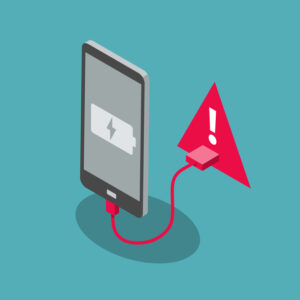
In today's world, where technology plays an integral role in our daily lives, a charged device is essential, whether for work or entertainment. Finding a USB port to charge your devices can be a lifesaver when venturing out, whether for shopping, catching a movie, or heading to the airport. However, the FBI recently announced that users should avoid using free USB ports in public areas.
This hacking technique is known as "Juice Jacking."
Juice jacking is a cyber-attack where a hacker gains access to a mobile device's data or infects it with malware by installing malicious software on a public charging station or USB charging port. When a user connects their device to a compromised charging station, the malware can be downloaded onto the user's device, allowing the attacker to gain unauthorized access to their data.
Here are some quick facts:
- 52% of malware is designed to leverage USB
- More than 100 public charging stations in popular areas, such as airports and shopping malls, were compromised with malware.
- While "juice jacking" may still be uncommon, it's also "a fairly easy and low-cost hack."
(USNorton)
The announcement states that hackers have now figured out how to hijack USB charging ports and spread malware to users' devices once they plug in their phones. It is also stated that some con artists will even leave cables plugged into charging stations. This is a common tactic used in juice jacking attacks. By leaving a cable plugged into a charging station, the hacker can make it appear as if the station is a legitimate charging source, which can lure users into connecting their devices. Overall, this issue is alarming because it will allow hackers to access all information within the device.
What does the FBI recommend?
The FBI recommends that all users carry their own chargers and use an electrical outlet instead. In addition to the FBI recommendation, users can avoid this issue by carrying a portable power bank where they would not have to use public charging. Keeping your device's software up to date is also a good idea, as manufacturers release security patches to fix vulnerabilities.
To read more about the FBI's announcement, I have linked it here.
If you have any questions, feel free to contact us and check out our "Security Insights" articles.



